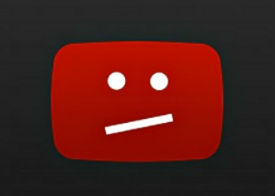Can YouTube Be Liable For Copyright Infringing Videos? EU Court to Decide

Week in and week out YouTube’s users upload millions of hours of videos. As with any user-generated content site, this also includes copyright-infringing content.
YouTube tackles this by processing takedown notices and using its Content-ID system to automatically remove allegedly infringing content. However, according to some prominent copyright holders, this is not good enough.
In Austria, this complaint is at the center of a lawsuit between the local television channel Puls 4 and YouTube. In an initial order last summer, the court ruled that the video platform can be held directly liable for users’ copyright infringements. YouTube was not seen as a neutral intermediary and should do more to prevent infringing uploads.
The court noted that YouTube takes several motivated actions to actively organize and optimize how videos are displayed. By doing so, it becomes more than a neutral hosting provider. Therefore, it can’t rely on a safe harbor defense.
This ruling was overturned by the Higher Regional Court of Vienna earlier this year. According to the appeal court, YouTube doesn’t have an “active role” as its search, categorization, and advertising service are seen as part of the normal business models of hosting platforms, which do not make the company liable.
Puls4 was disappointed with this ruling and immediately decided to take the case to the Supreme Court. This case is still pending but before it rules on the matter, the highest Austrian court is seeking input from the European Court of Justice (CJEU) on several crucial questions.
The questions haven’t been published publicly on CJEU’s website yet, but TorrentFreak obtained a copy of the Portuguese versions and IP KAT did the same with the German questions. These questions reveal, as expected, that the EU’s highest court will have to decide the boundaries of Europe’s safe harbors.
The first question, for example, asks if a video host, under Article 14 of the EU’s Electronic Commerce Directive 2000, takes on an “active role” that can make it liable for copyright infringements when it categorizes videos, makes suggestions by topic, and uses targeted advertising, among other things.
The EU Court is further asked to clarify whether Articles 12 to 14 of the EU’s Electronic Commerce Directive mean that providers are shielded from liability, even when their activity is seen as a communication to the public.
In addition, the Austrian Supreme Court wants to know if a court-ordered injunction only applicable if a service provider has actual knowledge of infringements which have been confirmed by a court?
The latter appears to deal with the question of whether sites such as YouTube have to remove content merely based on metadata (to prevent repeated uploads), as opposed to pointing out specific infringing content. That’s important because, in the Puls4 case, YouTube was not aware of any the contested infringements.
The CJEU’s decision will be a crucial one in the ongoing legal debate about the potential liability of third-party intermediaries such as video hosting providers.
Puls4 previously stressed that it believes that EU law is on its side. Among other things, the company pointed out other relevant CJEU decisions, including the case regarding the infringing nature of The Pirate Bay. In addition, it believes that recent developments regarding liability under the proposed Article 17 of the new EU copyright directive will help its cause.
Interestingly, this isn’t the only YouTube-related case on CJEU’s agenda. A German court also referred various copyright infringement-related questions last year. The Austrian Supreme Court was aware of this referral but believes that its questions deserve to be handled separately.
Source: TF, for the latest info on copyright, file-sharing, torrent sites and more. We also have VPN reviews, discounts, offers and coupons.




Leave a Reply
Want to join the discussion?Feel free to contribute!